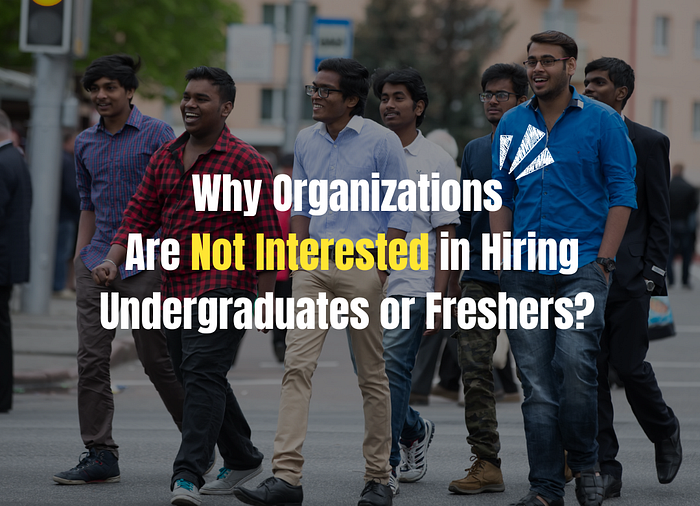Why Organizations Are Not Interested in Hiring Undergraduates or Freshers?
It's no secret that many companies prefer not to hire undergraduates or freshers. But why is that? One key reason is the lack of maturity to understand a business’s overall goals and how their role co
It's no secret that many companies prefer not to hire undergraduates or freshers. But why is that? One key reason is the lack of maturity to understand a business’s overall goals and how their role contributes to its growth. Many undergraduates struggle to maintain a corporate culture, leaning more toward socializing and engaging in behaviours that reflect their youthfulness and inexperience.
Additionally, they often lack the functional or operational knowledge that businesses need. Simple mistakes, such as spelling errors and poor communication, are common, and these can have a significant impact on a company’s professionalism.

The Possibility of Growth
But what if undergraduates were to overcome these limitations? If they could develop business maturity, functional knowledge, and strong communication skills, their youthful energy and creativity would become an asset. They could guide their career more effectively and take advantage of their age to accelerate their growth.
Fahad was part of the founding team at Pathao where he worked as SVP & Head of Product. He started his journey and success before graduation. https://www.ahmedfahad.com/about
My suggestion is that students should enter the job market after completing their higher secondary education. This would give them a chance to understand how businesses operate and how they can contribute. With this real-world knowledge, they would be in a better position to choose their next steps in education more carefully.
The Problem with Current Educational Pathways
Nowadays, students often pursue their university degrees based on what’s available, what others suggest, or based on educational grading systems. As a result, many find themselves graduating without a clear understanding of their career path, leaving their future to chance.

A New Approach: A Gap Year for Career Exploration
I suggest taking a gap of 1 or 2 years after completing higher secondary education. During this time, students can enroll in a professional course of their choice, aligned with their career plan. After completing this course, institutions should help place them in businesses or institutes, where they can assist in real-world activities and understand their potential future roles.
Through these experiences, students will know their future responsibilities and gain insight into available opportunities. They can then pursue their graduation and post-graduation based on their actual desires, equipped with practical knowledge and experience.
A Personal Journey
These ideas stem from my personal experience. I started my career after higher secondary by engaging in volunteer work with international non-profit organizations. This helped me learn how to plan, create checklists, organize tasks, and collaborate with others. I also worked with a community sales network, where I learned the importance of presenting yourself to customers and handling them with care.
Because I started my career alongside my studies, I gained an extra 3–4 years of work experience compared to others. When I entered the job market, this experience set me apart, even from those with better academic results.
A Final Word of Advice
My advice to younger brothers and sisters is to get involved with organizational activities, whether through paid or volunteer work. The experience you gain will be invaluable and will give you an edge over others.
I’ll be sharing some case studies of people who aren’t famous but have found success early in their careers. Stay tuned!
No comments yet. Login to start a new discussion Start a new discussion